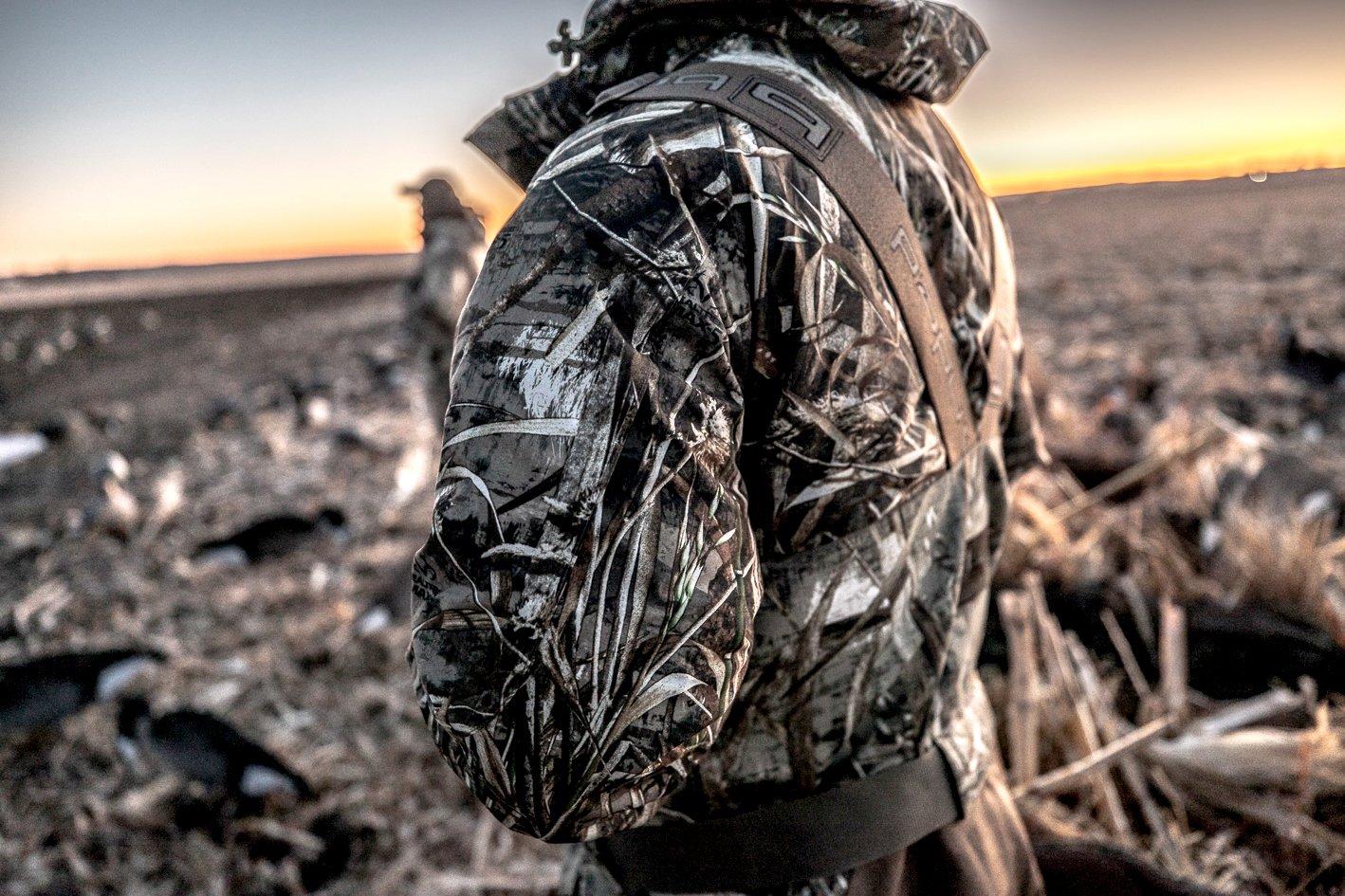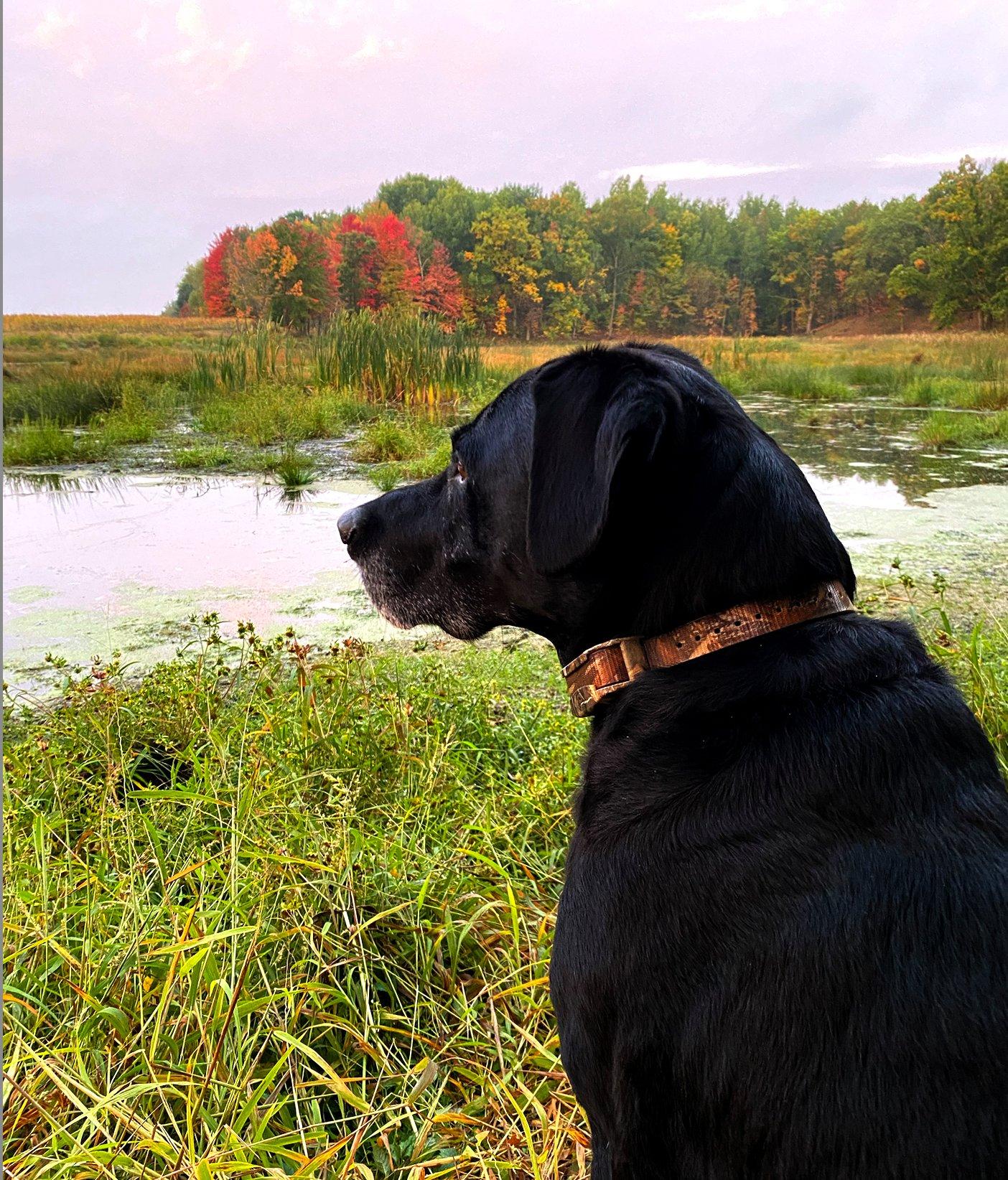School is always in session in the duck marsh. You just have to pay attention to those lessons

North or South, you need weather to move birds and keep flights fresh. That point was hammered home again in 2023-24. Photo by Nick Costas
My 2023 duck season began in soaking rain that filled my skiff like a bathtub and left my poor dog soaked and shivering. It ended 72 days later when I walked across a frozen marsh to the only open water left in the area, only to have the local mallards dodge me — again.
The days between those dates brought better conditions, happier times and, as always, plenty of lessons. Even after 45 duck seasons, the learning never stops, and the schooling is typically delivered in the form of bitter failure or surprising success. Here are a few of the takeaways this past duck season provided.
Gotta Have That Weather
If you ever questioned how much the weather — specifically unseasonably warm or dry conditions — affected duck hunting success, talk to a Southern hunter about the first portion of their 2023-24 campaign. Many might say it was the worst ever. Of course, that changed when a couple of good snowstorms and a polar vortex descended on the North, finally freezing all the open water and pushing mallards, honkers, black ducks, and other hardy holdovers south.
The weather isn’t quite as critical where I live, in Wisconsin, as we raise loads of local ducks and also see many photo-migrators — ducks that migrate because of decreasing daylight — in predictable October and November movements. But it still makes a difference. When new birds arrive, they’re usually relatively gullible and vulnerable for about two or three days. After that, they essentially become local ducks, with an annoying and uncanny ability to find safe spots where they can roost, loaf, and feed without being harassed. And if conditions — northerly winds and storm fronts, for example — don’t move those birds around and bring in new flights, you’re left hunting the same stale ducks until the next weather-maker.
Bottom line: Weather moves ducks and keeps things fresh. It’d be great to have consistent fronts every week from October through January, but we’ll take what we can get.
Don’t Miss: Spring 2024 Snow Goose Hunting Forecast
Why Not Try?
Sometimes, bad circumstances can spur positive action. This past season, I wasn’t able to pursue big-water divers as much as usual. So unless I felt like staying home in November, I had to branch out and find new areas. It can be tough to talk yourself into those exploratory trips, especially when you’re accustomed to success at tried-and-true spots. But such ventures are never wasted.
Digging into my memory banks, I recalled a lake where I’d experienced modest success years earlier on mallards and wood ducks. Figuring it was worth a shot, I packed a small bag of decoys and headed out for the evening flight, hoping to pick up a greenhead or two. Instead, I was greeted by a top-notch diver shoot, including redheads, ringnecks, and bluebills. Follow-up trips brought more divers and several dandy mallard and greenwing hunts, and I never saw another hunter. The action eventually slowed, but hunting that unlikely water saved my season.
The moral: Trying new areas is never wasted effort. Success is a bonus and lets you add a spot to your list. Failure just means you can cross off that area and focus on others, narrowing your search.
Old Dogs are the Best
Retriever owners know the cycle: Two years of promising peaks and frustrating valleys, perhaps five years of prime performance, and then the slow transformation into an old dog. And although we often long for the exuberance of a puppy or the polished execution of a dog in its middle years, it’s tough to ignore the appeal of an old retriever.

Unfortunately, a retriever’s hunting career is relatively brief. Enjoy the journey. Photo by Brian Lovett
And mine is old. Actually, she’s been old for a while, and 2023 marked her 13th full season of retrieving ducks and pheasants. She’s slower nowadays, and it takes her a lot longer to recover from a tough hunt, but watching her work this past year was worth any small sacrifice in performance. Every hunt became momentous, because I never knew if that might be the final time she got to visit a favorite spot. On our last day in South Dakota — a still, frigid hunt — we lingered a bit after the action had slowed, just to soak in the moment and reflect on 13 prairie adventures.
The experience is bittersweet, of course, as you know your buddy is easing into retirement, and that the fresh cycle of a new dog looms. But it closes out your story together — the hunting part, at least — making you appreciate the full scope of that journey.
Yeah, I wish that dogs never got old. But when they inevitably do, it’s pretty cool.
Don’t Miss: Waterfowl Migrations are Changing. Here’s What That Means for Hunters











